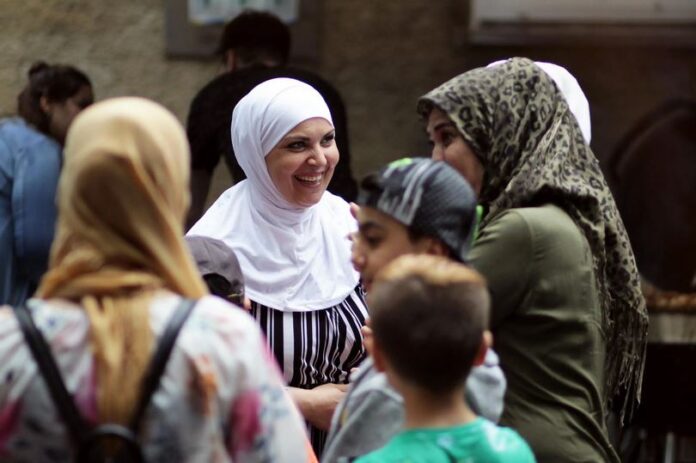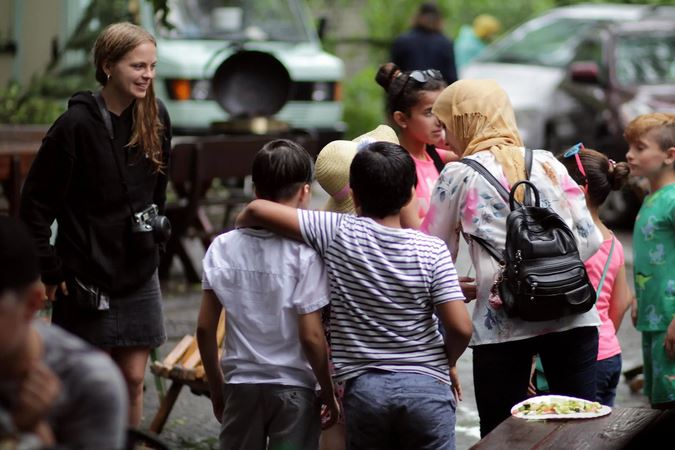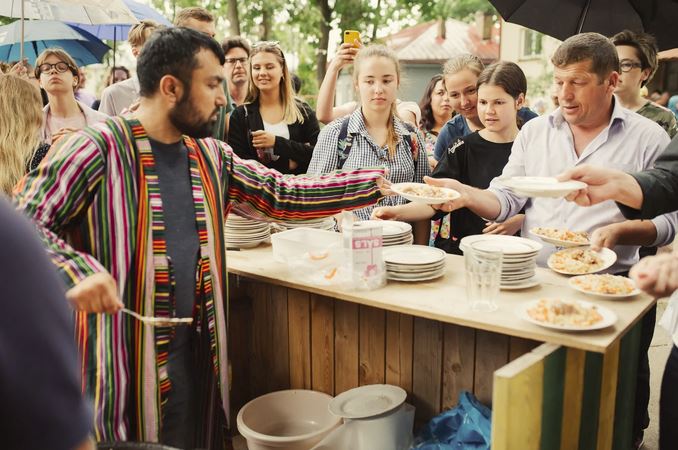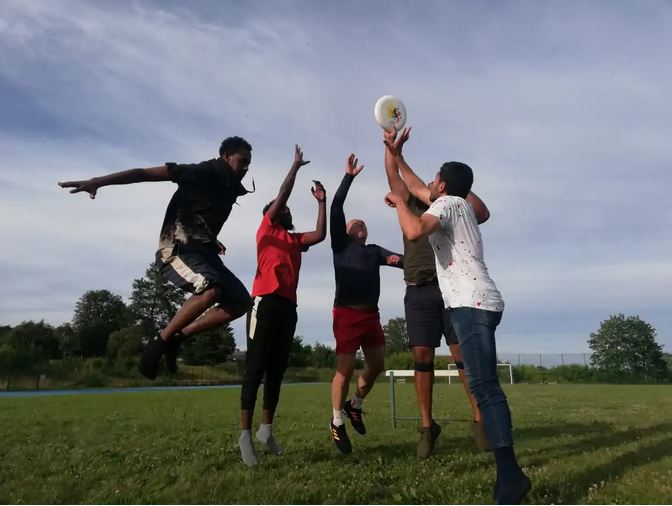
World Refugee Day is an international day designated by the United Nations to honour refugees around the globe. It falls each year on June 20 and celebrates the strength and courage of people who have been forced to flee their home country to escape conflict or persecution. World Refugee Day is an occasion to build empathy and understanding for their plight and to recognize their resilience in rebuilding their lives.
With new concerns arising from the situation in Belarus and increased numbers of illegal migrants entering Lithuania, questions regarding the need to shelter them have become more frequent. Why should Lithuania admit them? Doesn‘t helping them take resources away from Lithuanian citizens? In an interview for bernardinai.lt on International Refugee Day, staff of the Vilnius “Caritas” charity’s Immigrant Integration program provided another viewpoint, also answering questions about the role of the Catholic Church and the effort needed to ensure that immigrants are accepted by the public.

A common question is that with Lithuania being in debt, among other problems, isn’t it too expensive to be providing shelter for refugees? In fact, immigrants can actually help solve some of those problems. The current demographic crisis in Lithuania, due to high emigration and low birth rates, means that the work force is diminishing. As a member of the international community, Lithuania has commitments that it must honour, and meet major challenges the same way other countries might help Lithuania in times of need. Charitable work cannot be conditional upon economic practicality. In addition, there are immigrant quotas set by the European Union.

Although Lithuania may not be the refugees’ final destination because their goal could be to reach more prosperous Western countries, many of them do stay in Lithuania to work, study, start businesses and learn the language. As such, supporting their integration into Lithuanian society is an investment. For immigrants from Eastern countries, family values are very important, and once settled, uprooting children once more to go elsewhere would be too traumatic.
Negative reaction to refugees has increased recently – both among the public and in the press. Migrants from Belarus were called gangsters, who shouldn’t be allowed to stay in Lithuania. The press should uphold better standards of ethical communication, and not use sensationalism to spread fear and stereotypes, or fall prey to political manipulation to enhance readership. The statistics being used are also questionable – for example, Lithuania has not reached even half of its immigrant quota for the years 2015-2020, and the term had to be extended.

No matter how intense their own efforts may be, refugees integrate successfully only with the acceptance of a nation and its society. The Church must also take a leading role in encouraging empathy and urging the public to practice love of neighbour and to see the humanity of others, difficult though it may be to suspend judgement. Accepting outsiders requires conscious commitment. Refugees are not the only ones who need a helping hand. “Caritas” has a wide contingent of marginalized people needing attention and care, such as former convicts, returned victims of human trafficking, addicts, and the homeless. It takes courage to contribute to society in a concrete way, and make life in Lithuania better, say “Caritas” workers.
Most Lithuanians have not actually met any refugees, yet they feel endangered by them. “Caritas” members say they work directly with them, and do not feel threatened. A recent survey shows that 98% of employers are entirely satisfied with their immigrant employees, and would hire them again. An eloquent statistic.
As to the Church, it is not only its hierarchy, but the social network of its constituents. Increased education about refugees in parishes and organizations would be enormously helpful in changing negative attitudes.
Condensed and translated from an interview by Aušra Čebatoriūtė with “Caritas” Immigrant Integration director A. Kairienė, and staffers I. Čičelytė and A. Dudutytė, bernardinai.lt



























